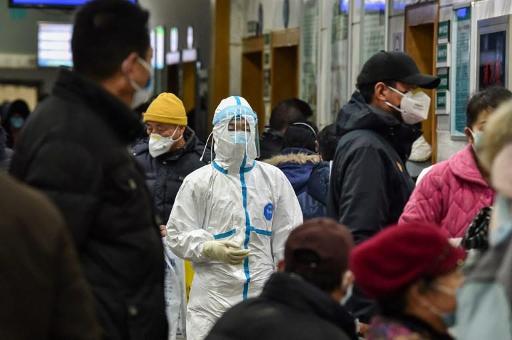All of the 15 Belgian nationals due to be airlifted out of the city of Wuhan in China will have to go onto quarantine at the military hospital in Neder-Over-Heembeek, health minister Maggie De Block said.
During that time they will be under observation, and anyone who shows signs and symptoms of infection by the coronavirus will be transported to the St-Pierre hospital in central Brussels – the reference hospital designated for this infection.
The airlift is being organised by the EU using a French military aircraft. After delivering its own nationals, the plane will continue on to the military airport at Melsbroek, close to Brussels-National airport.
Speaking on the VRT news magazine Terzake, De Block explained that the flight will only accept passengers who show no outward signs of infection, to avoid the risk to passengers and crew aboard the return journey. Anyone showing signs of infection will remain in China to be treated there.
The need for 14 days of quarantine is according to the latest guidelines from the World Health Organisation (WHO), which has declared a worldwide emergency as a result of the virus outbreak. But De Block explained that the declaration does not mean we have to be worried, but that developing countries can be better supported.
Belgium is currently facing a flu epidemic in February, and the coronavirus is of a different order, De Block said.
“The flu caused by the coronavirus is more infectious, but is not as deadly as ordinary flu,” she said. The annual epidemic of ordinary flu causes around 1,000 fatalities every year in Belgium. “This one affects the same groups as the ordinary flu: older people and anyone with an underlying illness. The dangerous thing about a virus is that it can mutate to become more dangerous or less virulent. That’s why they’re not to be trusted.”
So far, according to the latest figures, the coronavirus has caused nearly 10,000 infections and over 200 deaths, all of them in the Chinese province of Hubei. There have been ten confirmed cases in Europe: four in Germany, five in France and most recently one in Finland.
Alan Hope
The Brussels Times

